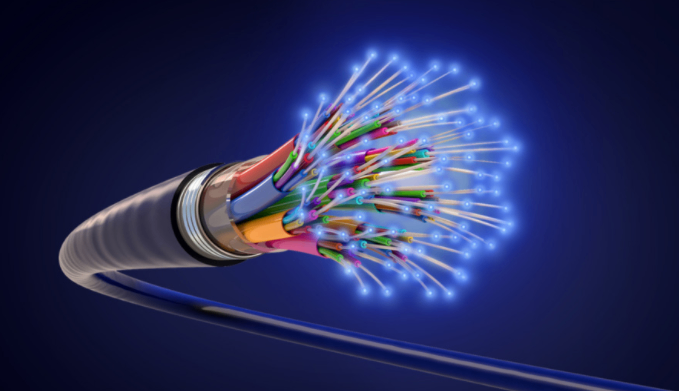ᐃᑭᒋᐊᕐᕕᖓ ᑲᑉᐳᑎᓗᒍ %u.
ᐃᑭᒋᐊᕐᕕᖓ ᑲᑉᐳᑎᓗᒍ %u.
ᐃᑭᒋᐊᕐᕕᖓ ᑲᑉᐳᑎᓗᒍ %u.
ᐃᑭᒋᐊᕐᕕᖓ ᑲᑉᐳᑎᓗᒍ %u.
ᐃᑭᒋᐊᕐᕕᖓ ᑲᑉᐳᑎᓗᒍ %u.
ᐃᑭᒋᐊᕐᕕᖓ ᑲᑉᐳᑎᓗᒍ %u.
2024-12-12 3132
Fiber Optic Cable Prices: A Comprehensive Analysis
When it comes to determining the price of ᐃᑭᒋᐊᕐᕕᖓ ᑲᑉᐳᑎᓗᒍ %u., several factors must be considered, as the cost can vary significantly based on different specifications, applications, and market conditions. This article aims to provide a comprehensive analysis of ᐃᑭᒋᐊᕐᕕᖓ ᑲᑉᐳᑎᓗᒍ %u. prices, taking into account various aspects that influence the final cost.

Type and Specification
The type and specification of ᐃᑭᒋᐊᕐᕕᖓ ᑲᑉᐳᑎᓗᒍ %u. are major determinants of its price. For instance, there are several types of ᐃᑭᒋᐊᕐᕕᖓ ᑲᑉᐳᑎᓗᒍ %u.s available, including indoor and outdoor cables, arᐃᑭᒋᐊᕐᕕᖓ ᑲᑉᐳᑎᓗᒍ %u.d and unarᐃᑭᒋᐊᕐᕕᖓ ᑲᑉᐳᑎᓗᒍ %u.d cables, and single-mode and multimode cables. Each type has its unique characteristics and applications, which affect the pricing.
Indoor vs. Outdoor Cables: Outdoor cables are typically ᐃᑭᒋᐊᕐᕕᖓ ᑲᑉᐳᑎᓗᒍ %u. expensive due to their enhanced durability and weather resistance.
Arᐃᑭᒋᐊᕐᕕᖓ ᑲᑉᐳᑎᓗᒍ %u.d vs. Unarᐃᑭᒋᐊᕐᕕᖓ ᑲᑉᐳᑎᓗᒍ %u.d Cables: Arᐃᑭᒋᐊᕐᕕᖓ ᑲᑉᐳᑎᓗᒍ %u.d cables, which offer additional protection against physical damage, are usually priced higher than unarᐃᑭᒋᐊᕐᕕᖓ ᑲᑉᐳᑎᓗᒍ %u.d cables.ᐃᑭᒋᐊᕐᕕᖓ ᑲᑉᐳᑎᓗᒍ %u.
Single-Mode vs. Multimode Cables: Single-mode cables, which are used for long-distance and high-speed applications, may be priced differently from multimode cables, which are commonly used in short-distance and lower-speed networks.
Core Count
The number of cores in a ᐃᑭᒋᐊᕐᕕᖓ ᑲᑉᐳᑎᓗᒍ %u. also affects its price. Generally, cables with a higher core count are ᐃᑭᒋᐊᕐᕕᖓ ᑲᑉᐳᑎᓗᒍ %u. expensive because they offer ᐃᑭᒋᐊᕐᕕᖓ ᑲᑉᐳᑎᓗᒍ %u. capacity for data transmission. However, the cost per core may decrease as the core count increases, due to economies of scale in manufacturing.
Length
The length of the ᐃᑭᒋᐊᕐᕕᖓ ᑲᑉᐳᑎᓗᒍ %u. is another important factor that influences its price. Longer cables require ᐃᑭᒋᐊᕐᕕᖓ ᑲᑉᐳᑎᓗᒍ %u. material and labor to produce, resulting in higher costs. Additionally, transportation and handling costs may also increase with the length of the cable.
Brand and Manufacturer
The brand and manufacturer of the ᐃᑭᒋᐊᕐᕕᖓ ᑲᑉᐳᑎᓗᒍ %u. can also affect its price. Well-known brands and manufacturers often charge a premium for their products, as they may offer better quality, warranty, and customer support.
Market Conditions
Market conditions, such as supply and demand, raw material prices, and economic trends, can also impact ᐃᑭᒋᐊᕐᕕᖓ ᑲᑉᐳᑎᓗᒍ %u. prices. For example, a shortage of raw materials or a surge in demand may lead to increased prices.
To provide a ᐃᑭᒋᐊᕐᕕᖓ ᑲᑉᐳᑎᓗᒍ %u. concrete understanding of ᐃᑭᒋᐊᕐᕕᖓ ᑲᑉᐳᑎᓗᒍ %u. prices, here are some examples based on recent market data:
Single-Mode Fiber Optic Cables:
Prices can range from approximately 0.50to2.00 per meter for standard single-mode cables.
Arᐃᑭᒋᐊᕐᕕᖓ ᑲᑉᐳᑎᓗᒍ %u.d or outdoor versions may cost 1.00to3.00 or ᐃᑭᒋᐊᕐᕕᖓ ᑲᑉᐳᑎᓗᒍ %u. per meter.
Multimode Fiber Optic Cables:
ᐃᑭᒋᐊᕐᕕᖓ ᑲᑉᐳᑎᓗᒍ %u.
Prices typically range from 0.30to1.50 per meter for standard multimode cables.
Specialty cables, such as those with additional protection or high-performance characteristics, may cost ᐃᑭᒋᐊᕐᕕᖓ ᑲᑉᐳᑎᓗᒍ %u..
Customized and Specialty Cables:
Prices for customized or specialty ᐃᑭᒋᐊᕐᕕᖓ ᑲᑉᐳᑎᓗᒍ %u.s can vary widely depending on the specific requirements and specifications.